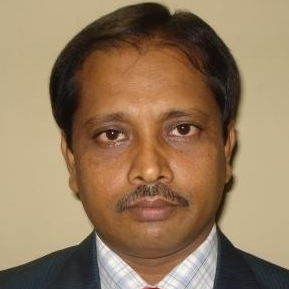
Utpal Biswas
Work place: Department of Computer Science and Engineering, University of Kalyani, Kalyani, West Bengal, India
E-mail: utpal01in@yahoo.com
Website:
Research Interests: Computer systems and computational processes, Computer Architecture and Organization, Computer Networks, World Wide Web, Data Structures and Algorithms
Biography
Dr. Utpal Biswas: Dr. Utpal Biswas received his B.E, M.E and Ph.D. degrees in Computer Science and Engineering from Jadavpur University, India in 1993, 2001 and 2008 respectively. He served as a faculty member in NIT, Durgapur, India in the Department of Computer Science and Engineering from 1994 to 2001. Currently, he is working as a Professor in the Department of Computer Science and Engineering, University of Kalyani, West Bengal, India. He is a co-author of about 120+ research articles in different journals, book chapters, and conferences. His research interests include Optical Communications, Ad-hoc and Mobile Communications, Sensor Networks, Semantic Web Services, E-governance, etc.
Author Articles
RDF Link Generation by Exploring Related Links on the Web of Data
By Kumar Sharma Ujjal Marjit Utpal Biswas
DOI: https://doi.org/10.5815/ijitcs.2018.10.08, Pub. Date: 8 Oct. 2018
Interlinking RDF resources is a vital aspect of the Semantic Web technology. It is the basis of Linked Data that provides interlinked datasets on the web. One of the principles of Linked Data is interlinking resources from different data sources on the web. Data interlinking is a critical and challenging problem that every Linked Data generation applications face. Various approaches have been evolved for resolving this problem, but, for more massive datasets, it becomes almost indefinite time while linking similar or related resources. Linking RDF resources is like the problem of entity matching, record matching or duplicate resource detection. More or less they attempt to point to the same problem, but the RDF link generation is the task of finding related resources on the web. In this article, we present an approach for generating RDF links using the similarity measure between two RDF resources and by exploring associated relationships of the matched resources. The idea is to find related resources and link them with an RDF resource that is being generated.
[...] Read more.PTSLGA: A Provenance Tracking System for Linked Data Generating Application
By Kumar Sharma Ujjal Marjit Utpal Biswas
DOI: https://doi.org/10.5815/ijitcs.2015.04.10, Pub. Date: 8 Mar. 2015
Tracking provenance of RDF resources is an important task in Linked Data generating applications. It takes on a central function in gathering information as well as workflow. Various Linked Data generating applications have evolved for converting legacy data to RDF resources. These data belong to bibliographic, geographic, government, publications, and cross-domains. However, most of them do not support tracking data and workflow provenance for individual RDF resources. In such cases, it is required for those applications to track, store and disseminate provenance information describing their source data and involved operations. In this article, we introduce an approach for tracking provenance of RDF resources. Provenance information is tracked during the conversion process and it is stored into the triple store. Thereafter, this information is disseminated using provenance URIs. The proposed framework has been analyzed using Harvard Library Bibliographic Datasets. The evaluation has been made on datasets through converting legacy data into RDF and Linked Data with provenance. The outcome has been quiet promising in the sense that it enables data publishers to generate relevant provenance information while taking less time and efforts.
[...] Read more.Other Articles
Subscribe to receive issue release notifications and newsletters from MECS Press journals